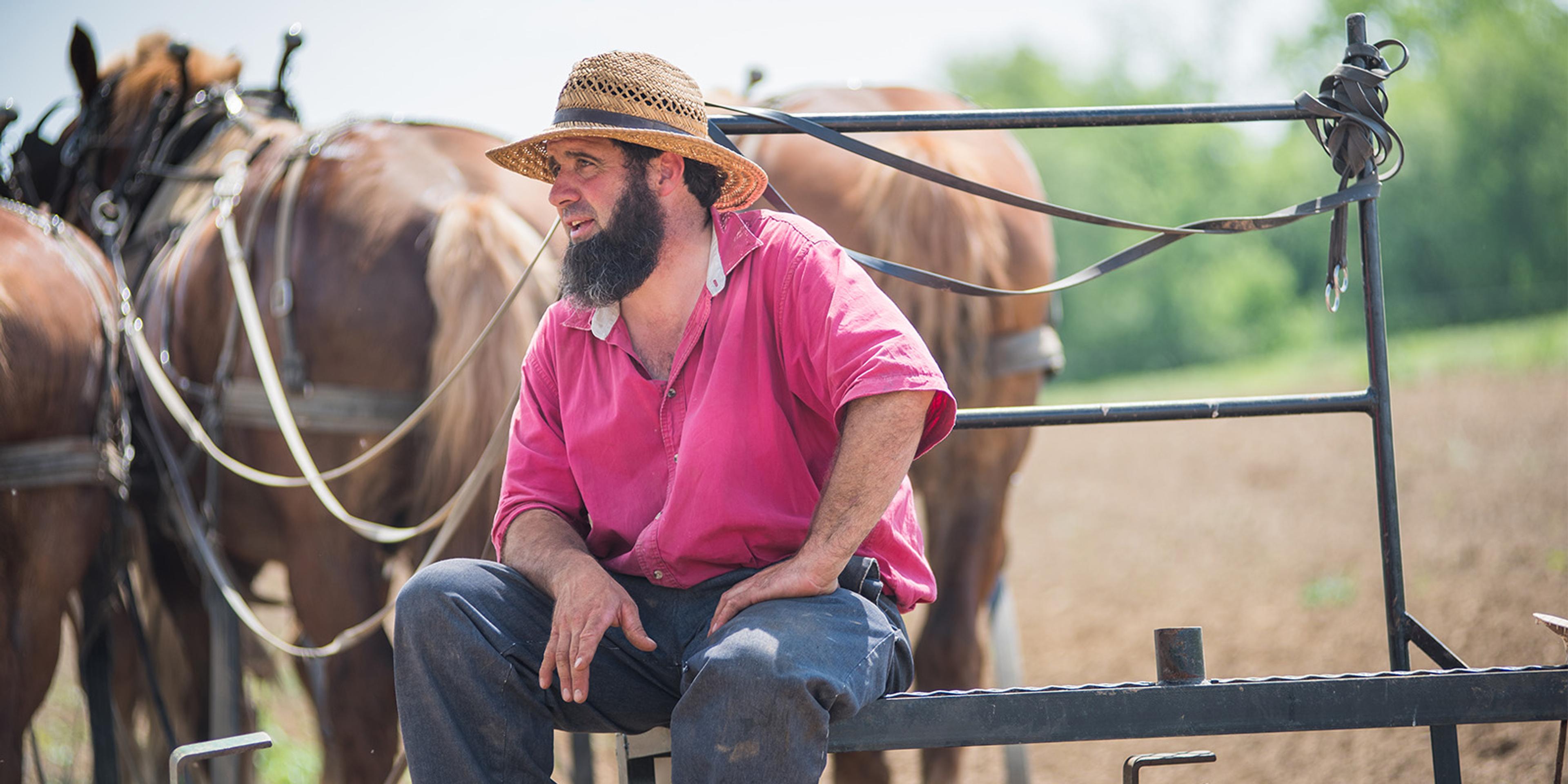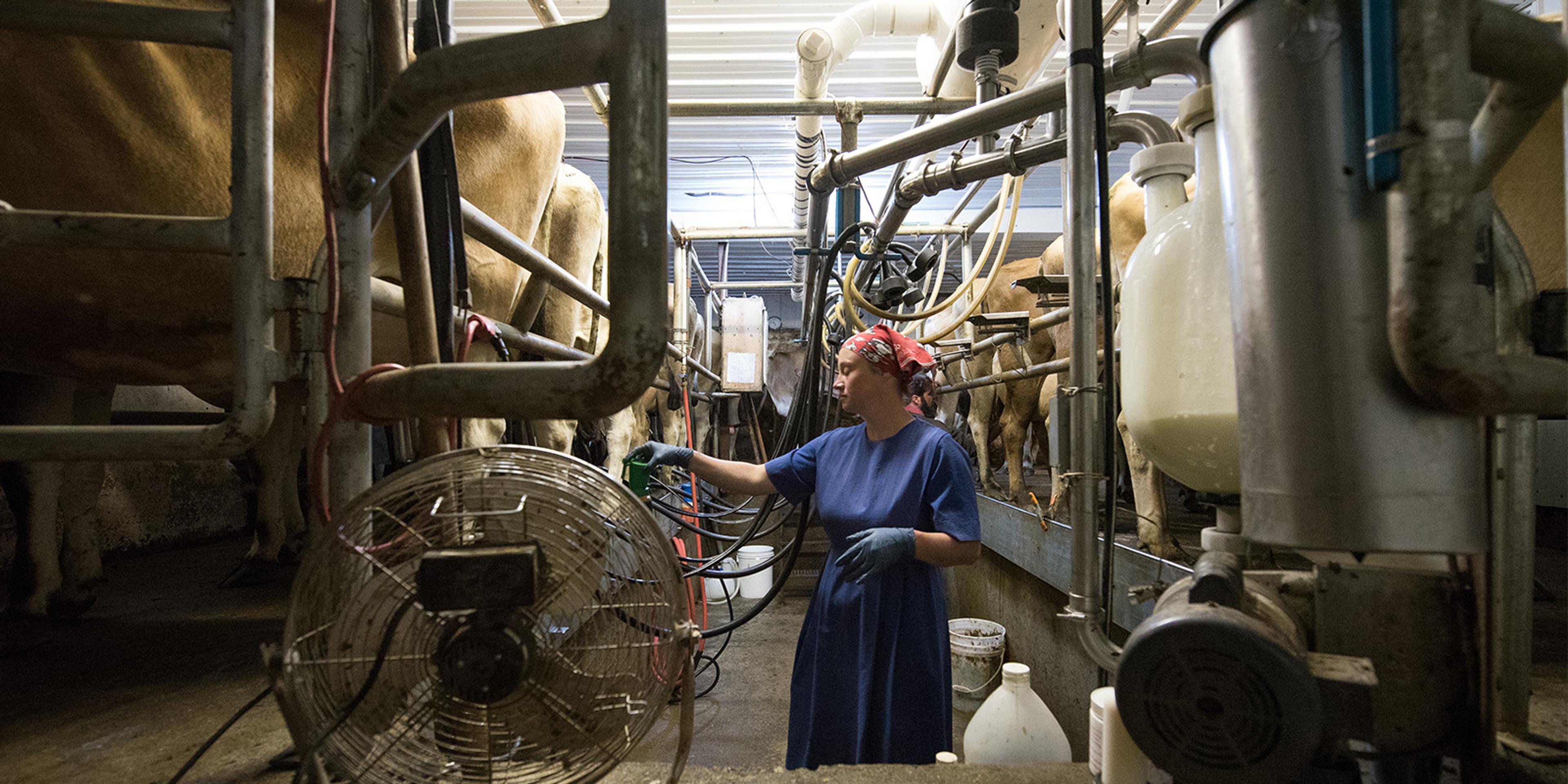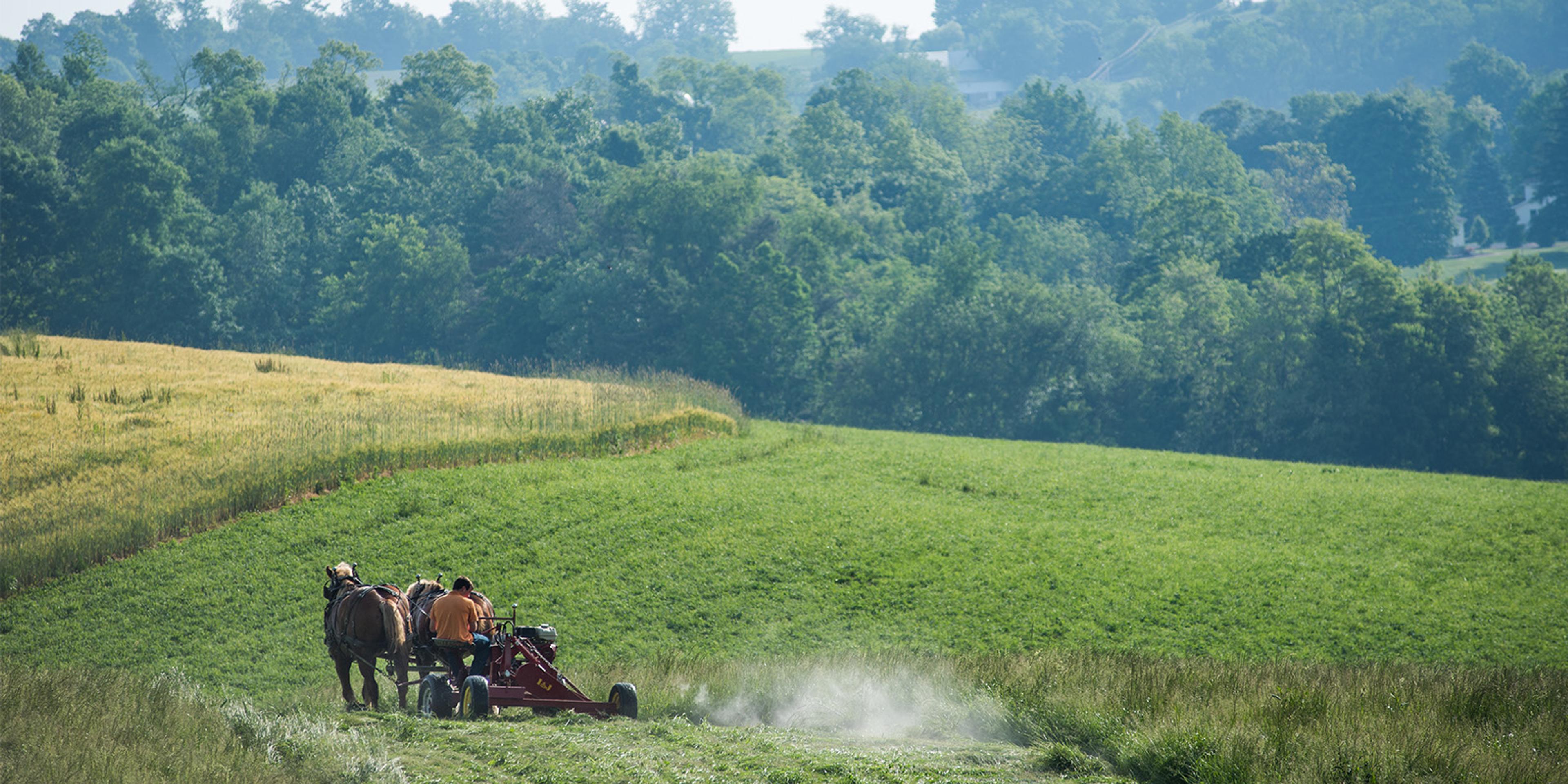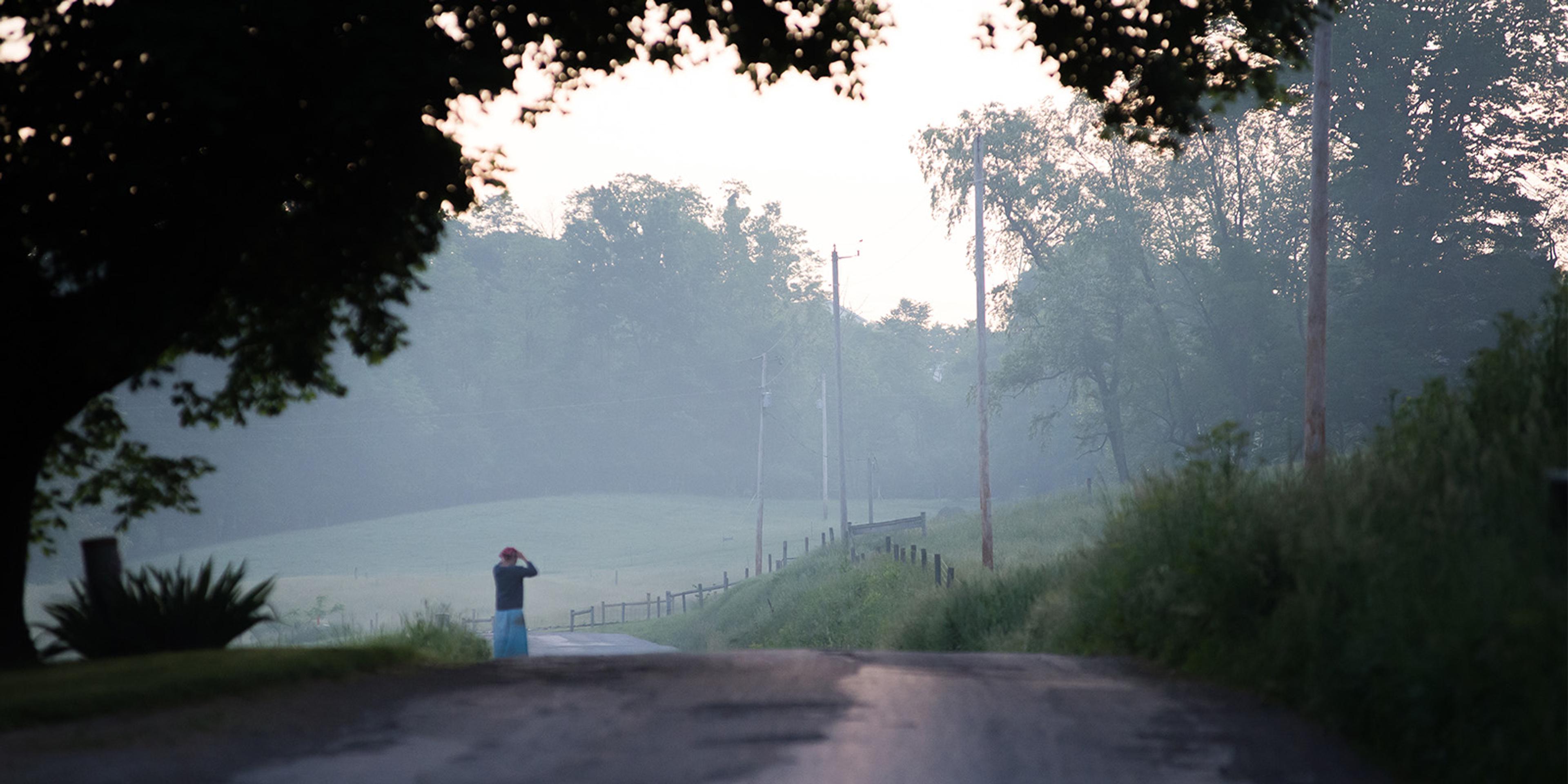
Farming
‘I Truly Want to Save Small Family Farms’
Organic Valley exists to save, support and sustain small organic family farms. Our founders had the crazy idea that food could be raised the right way, and farmers should be treated fairly. We still believe that.
About 43% of Organic Valley farmers are members of the Plain community, including Amish and Mennonite. During the cooperative’s most recent election, Organic Valley farmers for the first time elected an Amish farmer, Tim Kline, to serve on the co-op’s board. Meet Tim Kline:
Tim Kline is a humble man who deeply values connections to family, his neighbors and the earth. His dairy farm is one of the last farms in his church community, and he has no intention of abandoning the lifestyle he so cherishes.
“I can remember when there were hundreds of dairy farms in this community,” he said. “All of my friends growing up lived on a dairy farm.”
Kline can look out over the valley on his Ohio farm and see eight vacant barns — barns that once overflowed with the sounds, sights and smells of farming operations.
A meandering stream (thus the name Meandering Creek Farm) is backdropped by a steep hill on the land he calls home.
“I head up the hill, look around, then close my eyes and dream of what it looked like 50 years ago,” Kline said. In 50 more years, there may be no small family farms left to save.
The U.S. lost more than 100,000 farms in the past 10 years. Once farms disappear, they rarely come back, and Kline is not about to let that happen to his small family farm.
“For myself as a dairy farmer, doing anything else causes me to cringe,” he said. The family donated their farm to a farmland trust, so it can never be developed. “My house is not just a house. It’s a place of refuge.”

Katie Kline milks cows at the family’s organic dairy farm in Ohio.
Fighting for Farms. Fighting for Community.
Tim, Katie and their daughter work tirelessly on the farm. Their three other children live close by and help milk cows, chop corn, bale hay and take on other chores when needed. They are happy to help out, but they do get a bit of a bonus: fresh milk and meat for their families.
They are passionate about building and sustaining a community-centered lifestyle.
The family enjoys talking to curious strangers who stop by and appreciates the opportunity to share details about their way of farming and life. Ask Tim anything about farming or the Amish way (or pretty much anything), and he will tell you. The Amish wear hats as a sign of humility and modesty — traits that Tim exudes.
Small farms and community go hand in hand, Tim said. All of the towns in Kline’s neighborhood are 7 miles apart — just the right distance to travel by horse and buggy. Many of his community members left farming and turned to woodworking and construction to earn a living.
“The loss of farms is affecting our culture,” Tim said. “It’s affecting everything our community is known for. It has affected the thought process as we become more industrialized.”
People in Kline’s community used to rely on each other in trying times, but that is fading as people leave the land, he added.
“Our thinking and our thoughts become very different. We become self-sufficient. We become entitled, and we don’t need our neighbor,” he said of the changes he has seen.
But we can’t only dwell on the negativity, he said. There are thriving family farms in his area, and the majority display the Organic Valley sign. The Kline family is one of more than 1,600 Organic Valley farms dedicated to protecting where your food comes from.
Organic Valley got its start in the 1980s when family farms were dying off. Many farmers struggled to make a living without resorting to chemical-intensive agriculture, and the idea was to use organics to get sustainability and fair pricing into supporting family farms.
“We lose small family farms, we lose connection with the land and the community,” Tim said.
He also stresses the importance of prioritizing the health of land and animals. The 60-some grass-fed Jersey dairy cows on their farm have names, and the family has a “deep, deep relationship with the land.”
“We nurture it because we understand if we ruin it, it will not provide for us anymore,” Tim said. “It may be hard for an outsider to understand how much effort we put into it. We sacrifice today to ensure we have tomorrow.”

The Kline family farm.
Farming Organically
Organic farmers strive to be in harmony with nature as much as possible.
“We are not dependent on artificial substances or ingredients to force the land to perform the way we want,” Tim said.
Organic Valley is dedicated to organic farming founded on the principles of doing what is good for the earth without using harmful chemicals. With continued use of chemicals by conventional farms, the land could eventually be poisoned to the point that it will no longer be usable, he said.
Other organic farming practices are also gentler on the earth and the wild animals that share these farms. Organic Valley dairy farms are 50% smaller than the national average, and smaller farms often mean smaller, less-invasive farm implements. Many members of the Plain community farm with horses, leaving a less-invasive footprint on the ground than mega-tractors.
Organic Valley farms have kept about 540 million pounds of chemicals off the earth since its beginning in 1988. Anything with a skull and crossbones on the label that people put onto the land will not dissipate and easily disappear, Tim said about toxic pesticides used on many conventional farms. However, it does cost more to farm organically.
“For small farms to thrive, consumers need to be willing to buy organic, but it does come with a price tag,” Tim said. By supporting co-ops like Organic Valley, you are doing your part for the health of the earth.

Sacrificing for the Future
The sight of Tim’s neighboring farms — now devoid of cows and fresh-cut hay — will not thwart his devotion to community and saving farms. It has fueled his desire, he said. Being a member of the co-op board makes this possible on a larger scale and provides an opportunity to work with more farms, develop policies and share in the goodness that is Organic Valley.
“I truly want to save small family farms,” he said.
“The thing my culture has taught us since the time we were born — it’s just ingrained in us — for future generations to benefit, it takes effort and sacrifice for everyone. If we only take, take, take, it will only be gone by the next one.”
An antique typewriter fanatic and chicken mom who treasures time outdoors admiring all that nature has to offer, Jennifer McBride is Rootstock’s editor. McBride spent 15-plus years as a journalist and newspaper editor before finding her niche with the nation’s leading organic dairy cooperative. Contact her at Rootstock@organicvalley.com.
Related Articles
- Tags:
- farm life,
- family & kids


















